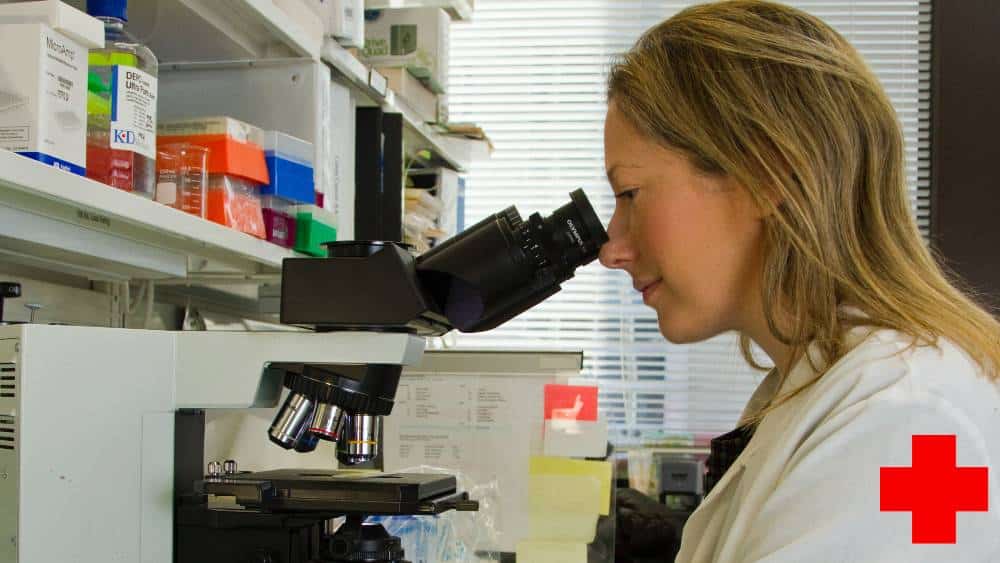Hello everyone, welcome to an informative guide about Nurse Practitioner Burnout!
In this article, we’ll talk about what Nurse Practitioner Burnout is, some of the signs to look out for, and how to prevent it.
By the end of this article, you’ll be able to recognize NP Burnout symptoms and the effective intervention strategies to use before the stress worsens.
In a nutshell, we’ll talk about:
- What is a Nurse Practitioner Burnout?
- Symptoms of NP Burnout
- How to prevent NP Burnout
Let’s get started!
What is a Nurse Practitioner Burnout?

Burnout is extreme stress caused by overworking.
Nurse Practitioner Burnout refers to the high levels of stress that NPs experience because of the demands of their jobs.
NP Burnout takes a toll on Nurse Practitioners’ physical and mental health, reducing their overall productivity, even worse, putting their health in danger.
And now you must be wondering what exactly causes burnout in Nurse Practitioners.
You are about to find out.
Top Causes of Nurse Practitioner Burnout

Nurse Practitioner Burnout can pose a huge challenge to an NP.
Hence, it’s important to know what causes work burnout and hopefully avert the worst by taking precautions, which we will talk about in a bit.
Here are the primary causes of NP Burnout:
Extended Working Hours
While NPs may have experienced long study hours in the school of nursing, that’s nothing comparable to NPs’ working hours.
Nurse Practitioners have a flexible yet demanding work schedule.
More often than not, they extend their shift.
They may work through lunch and leave late in the evening.
Part of the reason for the long working hours is that NP split their work between caring for patients and filling out electronic health records and other documentation.
The EHR is an important aspect of the healthcare system.
As such, no matter how late their shift runs, NPs must dedicate time to documentation.
The long hours with little to no breaks can be physically and mentally exhausting.
Pressure to Meet Metrics
Healthcare professionals like Physicians and APRNs have many patients they should see in a day.
That means NPs must minimize the time they commit to each patient, which may reduce the quality of care a patient gets.
When a patient is not thoroughly examined, there are high chances that they’ll have several follow-up visits, which will further fill up the already tight NPs’ schedule.
Again, an NP may decide to commit considerable time to address a patient’s concern, but this will still add to the pressure since they will not meet the daily target.
The delay will hold up the line, and some patients may end up missing their appointments.
Bottom line?
The clinical practice will suffer, losing revenue.
For that reason, health facility administrators encourage shorter time with patients and, at the same time, expect Nurse Practitioners to provide exceptional patient care.
High Level of Responsibility, No Control of Outcome
Nurse Practitioners are sometimes the primary care providers in a healthcare facility.
And even when they are not, NPs have a high level of responsibility.
They treat acutely ill patients as well as those struggling with common illnesses.
In all these instances, patients need physical care and emotional support.
And so, meeting the needs of the diverse patient population daily may be a tall order.
Further, NPs have no control over what type of sickness they’ll be treating in a day.
All these factors lead to job dissatisfaction which in the long run may cause Nurse practitioner burnout.
Symptoms of NP Burnout

Now that the causes of NP Burnout are out of the way, let’s look into signs of Nurse Burnout that a Nurse Practitioner should look out for:
- Physical, mental, and emotional exhaustion
- Physical symptoms like lack of appetite, insomnia, headaches, and nausea
- Poor concentration levels
- Little to no concern for patient’s well-being
- Easily irritable by patients and colleagues
- Lack of motivation to get up and go to work
- Zero job satisfaction
- Frustrated with the mundane tasks of an NP
- Feeling of worthiness when it comes to accomplishment at work
Research has it that healthcare professionals with burnout are more likely to experience a higher job dissatisfaction, contemplate early retirement and make more medical errors.
Hence, it’s crucial to take charge immediately when an NP notices the early signs of burnout.
How to Prevent NP Burnout

Some healthcare facilities have put in place measures to help their healthcare providers manage burnout, while for others, the responsibility is solely on the healthcare professionals.
However, even when the facility has intervention measures, an NP must put some effort into regaining their health and well-being.
So, here is a list of five strategies to help combat burnout as a Nurse Practitioner.
Prioritize Self-Care
Top on our list is self-care.
Given how demanding a Nurse Practitioner’s job is, NPs often forget about taking care of themselves, which contributes to burnout.
Self-care involves getting enough sleep, at least 7-8 hours, to deliver effectively.
The hard work combined with little sleep can be disastrous.
As such, Nurse Practitioners should work towards adjusting their sleeping patterns depending on their work schedule to ensure enough sleep.
Good quality sleep helps rejuvenate the body and improve mental health.
Overall, sleep enhances alertness, mood, concentration, motivation, and stamina.
Apart from sleep, exercise is an essential aspect of self-care.
NPs can use a regular workout session after their shift, even for 30 minutes.
A walk during breaks can also be a great addition to the self-care routine.
Exercise helps release stress and also makes one feel happier.
Lastly, practicing mindfulness is a great way to refresh the mind and release stress.
There are many mindful practice exercises online that an ARNP can leverage.
Maintain a Work-Life Balance
As we’ve mentioned, burnout in nursing is not a new phenomenon.
Part of the reason it’s so rampant is the back-to-back work shifts, which limits one to the healthcare facility alone.
Part of the reason for this is picking up extra shifts.
For an NP to gain control of their life, it’s important to maintain a balance.
One way to do that is to stick to their schedule without adding extra work.
This will give them time off to recharge.
Further, Nurse Practitioners should leave everything work-related in the practice environment after they get off their shift.
And when they are spending time with friends and family, it’s important to do things one enjoys, say hiking, biking, massage, dancing classes, etc.
This will give meaning to a Nurse Practitioner’s life beyond work.
Have a Support System
When the going gets tough, the best bet is to get a shoulder to lean on.
That’s why a support system is important in an NP’s life.
Nurse Practitioners should have people both in the work environment and outside that they can bank on when they are in distress.
Having a support system, especially within the healthcare system, is important since an MP can find someone to share their workload when they are overwhelmed.
Apart from helping with work, fellow advanced Registered Nurses can lend a listening ear to an NP’s frustrations.
The support system can offer advice, comfort, and encouragement.
A problem shared is a problem half-solved.
Get Professional Support
Sometimes, the support from friends and family may not be enough.
Suppose the situation is getting worse despite the support from those within an NP’s circle.
It’s time to consider professional help from a counselor.
This can be through the facility’s counseling programs for staff members or employee-assisted programs.
If the facility doesn’t have a program, it’s best to consider the options outside the workplace.
A therapist has the skills to help one release the stress.
They also guide through stress management and burnout prevention strategies.
An NP will most likely come out from the therapy with the tools to help effectively manage Nurse Practitioner burnout in the long term.
Evaluate Work Options
The above options can tremendously reduce Nurse Practitioner burnout.
But if an Advanced Practice Nurse tries all these options and they still feel suffocated by the environment, perhaps it’s time to seek employment elsewhere.
A recent survey by the Journal for Nurse Practitioners found that Nurse Practitioners working in a favorable work environment where there’s support, teamwork, and optimal resources are less likely to experience burnout.
Their counterparts in poor healthcare settings are more likely to experience burnout.
Hence, changing the job to a more healthy work environment may help relieve burnout.
Conclusion

Burnout is common among healthcare workers.
And since Nurse Practitioners are trusted professionals in healthcare, they must prioritize their wellness to better take care of patients.
It’s important for NPs to know what causes burnout, some of the signs to look out for, and how to prevent it in the first place.
This way, they can better manage the demands that come with the job.
FAQs

How do you know if you have Nurse burnout?
There are several signs that indicate Nurse Practitioner Burnout. Here is what you should watch out for:
– Feeling emotionally and physically drained
– Finding it stressful to care for patients
– Being overly anxious and stressed about reporting to work
– Physical symptoms like headache and insomnia
How does Nurse Burnout affect patient care?
Nurse Practitioners experiencing burnout find it challenging to empathize with their patients. Hence, they provide low-quality patient care. Further, they find it hard to collaborate with Physicians, Clinicians, and RNs. Lack of teamwork further diminishes primary care practice. These NPs are at risk of depression and other mental health issues.
How to recover from Nurse Practitioner Burnout?
Here is how to recover from NP Burnout:
– Practice self-care: This involves exercise, healthy eating, enough sleep, and mindfulness
– Maintain work-life balance: Take time off to relax
– Leverage support system: Friends, family, and colleagues can help
– Seek professional help: A therapy session can help
What nursing specialty has the highest Burnout?
Critical care NPs have the highest level of burnout. They include emergency department and intensive care unit NPs. These NPs deal with trauma situations and unpredictable work environments. Further, they deal with death the most, which could be another cause of the high-stress levels.
What is the most difficult Nurse Practitioner specialty?
Adult Acute Care Nurse Practitioner is the hardest. These NPs have either MSN or DNP with specialization in caring for critically ill patients. They often work in the inpatient department in hospitals, which requires long hours that may include the weekend.
What is the most common reason for a Nurse Practitioner’s Burnout?
Lack of sleep is a common reason for burnout. Whether pediatric, women’s health, or neonatal, Nurse Practitioners work long hours. Sometimes, they have consecutive shifts. Within no time, the chronic lack of sleep takes a toll on their health. NPs require adequate rest to perform at an optimum level.
Why are Nurse Practitioners at a higher risk of burnout?
We can associate the high risk with a toxic work environment. Nurse Practitioners working in unsupportive clinical practices that prioritize revenue over their well-being are more likely to experience burnout. But then again, these facilities have a high turnover rate and are always staffing.
Are Nurse Practitioners over-saturated?
In urban centers like New York, opportunities are scarce, while in rural areas, there’s demand as NPs are the primary healthcare providers. BLS projects an increase in demand for APRNs by 45%. With the pandemic, the American Association of Nurse Practitioners (AANP) also projects increased demand for NPs.








